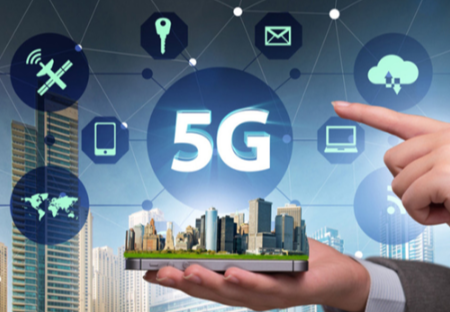5G technology stands at the forefront of a connectivity revolution. Its ultra-fast speeds and minimal latency promise to transform how devices communicate. As cities evolve into smart hubs, healthcare advances toward real-time solutions, and transportation embraces automation, the implications of 5G are profound. Yet, the full extent of its impact remains to be seen. What challenges and opportunities will emerge as this technology reshapes our daily lives?
The Impact of 5G on Smart Cities
As urban populations continue to swell, the integration of 5G technology into smart cities promises to revolutionize urban living by enhancing connectivity and efficiency.
This advancement facilitates the deployment of smart infrastructure, allowing connected devices to communicate seamlessly.
Consequently, cities can optimize resource management, improve public safety, and foster innovative solutions, ultimately empowering citizens and creating a more dynamic, responsive urban environment.
Read more: Smart Homes of the Future: What’s Coming Next
Transforming Healthcare With 5G Technology
While the healthcare sector has long faced challenges in delivering timely and efficient services, the advent of 5G technology is poised to transform patient care significantly.
Enhanced remote monitoring capabilities and telemedicine advancements will empower healthcare providers to deliver real-time, personalized care. This connectivity not only improves patient outcomes but also fosters greater autonomy, enabling individuals to manage their health more effectively.
The Role of 5G in the Future of Transportation
The integration of 5G technology is set to revolutionize the transportation sector, much like its impact on healthcare.
Enhanced connectivity will enable autonomous vehicles to communicate seamlessly, improving safety and efficiency.
Furthermore, advanced traffic management systems will optimize flow, reducing congestion and emissions.
This transformation promises a more liberated and efficient travel experience, empowering individuals to navigate their environments with unprecedented freedom.
Conclusion
In the grand tapestry of technological evolution, 5G emerges as a vibrant thread, weaving together the disparate strands of smart cities, healthcare, and transportation. Its ultra-fast connectivity acts as a catalyst, igniting a renaissance of innovation and efficiency. As this new era unfolds, 5G not only bridges distances but also forges connections, ensuring that the future of connectivity is not just a possibility, but a vivid reality, illuminating the path toward a more harmonious and integrated world.
